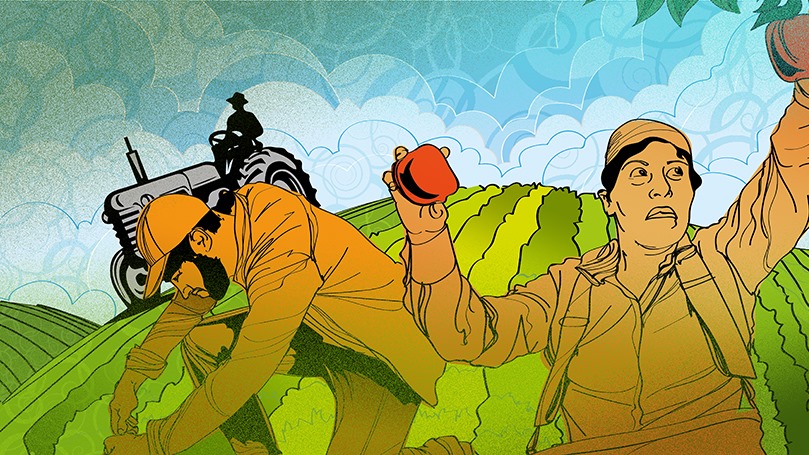
Occupy Wall Street. Black Lives Matter. The People’s Climate March. The Women’s March. The ongoing mobilizations to defeat Trump and the extreme right that supports him. As we marched and organized against injustice, poets, often marching right alongside us, were creating enduring works of poetry that spoke to the struggle and the times we live in.
As a new generation took to the streets between 2010 and 2019, poetry increased in popularity, whether it was poetry of social consciousness in traditional forms or hip-hop rhymes and rhythms going viral on social media.
People have always turned to the intimate voices of poetry to speak to the complex times they live in, and to open up new worlds. One particular reason now may be the increased access to a range of new voices—Black, Latino, Asian, white—opened up by social media, whether nationally and internationally.
What follows is not a “best of” the incredible diversity of poetry published in the decade 2010–2019 in the U.S. (let alone worldwide), although many of these collections could claim that mantle, but a list of ten important poetry books written from, about, or for the movement for social justice.
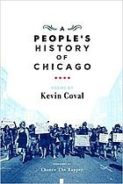 A People’s History of Chicago, by Kevin Coval (Haymarket, 2017). These amazing hip-hop–driven poems, bearing the scars of Chicago history, tell the sagas of people’s struggles that make Chicago the city it is. Indigenous peoples, Ida B. Wells, Albert Parsons, Eugene Debs, the Daley political machine, Fred Hampton, Rudy Lozano, Chicago striking teachers, and Gwendolyn Brooks all make an appearance. “Muddy Waters Goes Electric,” “Studs Terkel Drops a Mix Tape,” and “Martin Luther King at Marquette Park” indicate the range. Although the book is “just” about Chicago, this could serve as a fine poetry accompaniment to Howard Zinn’s A People’s History of the United States.
A People’s History of Chicago, by Kevin Coval (Haymarket, 2017). These amazing hip-hop–driven poems, bearing the scars of Chicago history, tell the sagas of people’s struggles that make Chicago the city it is. Indigenous peoples, Ida B. Wells, Albert Parsons, Eugene Debs, the Daley political machine, Fred Hampton, Rudy Lozano, Chicago striking teachers, and Gwendolyn Brooks all make an appearance. “Muddy Waters Goes Electric,” “Studs Terkel Drops a Mix Tape,” and “Martin Luther King at Marquette Park” indicate the range. Although the book is “just” about Chicago, this could serve as a fine poetry accompaniment to Howard Zinn’s A People’s History of the United States.
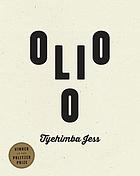 Olio, by Tyehimba Jess (Wave Books, 2016). Written by one of the best of the African American poets gathered around the Cave Canem Foundation, Olio explores the Great Migration of African Americans from the 1870s up to World War I. But the astonishing thing about this almost encyclopedic collage of sestinas, haikus, long poems, letters, and interviews is that the subject is seen through the eyes of minstrels, vaudeville performers, and jubilee singers (Blind Tom, the Fisk Jubilee Singers, Harry “Box” Brown, Scott Joplin, Sissieretta Jones, etc.) performing for white audiences a generation out of slavery. Langston Hughes would have loved this book. Olio becomes an opera of unrecognized voices and the forgotten people behind the masks. And the deeper Jess delves into this unrecognized slice of American history the more powerfully the poetry resonates with our present day.
Olio, by Tyehimba Jess (Wave Books, 2016). Written by one of the best of the African American poets gathered around the Cave Canem Foundation, Olio explores the Great Migration of African Americans from the 1870s up to World War I. But the astonishing thing about this almost encyclopedic collage of sestinas, haikus, long poems, letters, and interviews is that the subject is seen through the eyes of minstrels, vaudeville performers, and jubilee singers (Blind Tom, the Fisk Jubilee Singers, Harry “Box” Brown, Scott Joplin, Sissieretta Jones, etc.) performing for white audiences a generation out of slavery. Langston Hughes would have loved this book. Olio becomes an opera of unrecognized voices and the forgotten people behind the masks. And the deeper Jess delves into this unrecognized slice of American history the more powerfully the poetry resonates with our present day.
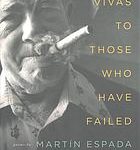 Vivas to Those Who Have Failed, by Martín Espada (Norton, 2016). Widely recognized as the leading Latino poet of his generation, Espada is also a poet of the working class. The title poem eloquently portrays the epic 1913 strike of 25,000 Paterson, New Jersey, silk workers, which ended in defeat but led to later gains for workers nationwide. Espada’s fiery imagery has led some to call him “the American Neruda.” The powerful poem “El Moriviví” uses the metaphor of a flower that grows in Puerto Rico and the meaning of its name to commemorate his father, a longtime civil rights and Puerto Rico liberation activist. The poems explore the notion that, like the flower, the spirits of the downtrodden, forgotten, and dead who have “failed” continue to live on after their death and can speak to us through poetry.
Vivas to Those Who Have Failed, by Martín Espada (Norton, 2016). Widely recognized as the leading Latino poet of his generation, Espada is also a poet of the working class. The title poem eloquently portrays the epic 1913 strike of 25,000 Paterson, New Jersey, silk workers, which ended in defeat but led to later gains for workers nationwide. Espada’s fiery imagery has led some to call him “the American Neruda.” The powerful poem “El Moriviví” uses the metaphor of a flower that grows in Puerto Rico and the meaning of its name to commemorate his father, a longtime civil rights and Puerto Rico liberation activist. The poems explore the notion that, like the flower, the spirits of the downtrodden, forgotten, and dead who have “failed” continue to live on after their death and can speak to us through poetry.
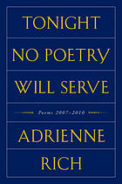 Tonight No Poetry Will Serve, by Adrienne Rich (Norton, 2011). This completes the arc of her journey from “art for art’s sake” poet in the 1950s to one of the finest political poets of her generation. In her towering poems against militarism, white supremacy, and patriarchy, Rich always combines the personal with the political. Long a mentor for feminist poets, Rich refused the National Medal of the Arts by the Clinton administration, using the occasion to speak out against endless war, racism, and inequality.
Tonight No Poetry Will Serve, by Adrienne Rich (Norton, 2011). This completes the arc of her journey from “art for art’s sake” poet in the 1950s to one of the finest political poets of her generation. In her towering poems against militarism, white supremacy, and patriarchy, Rich always combines the personal with the political. Long a mentor for feminist poets, Rich refused the National Medal of the Arts by the Clinton administration, using the occasion to speak out against endless war, racism, and inequality.
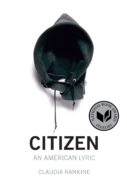
Citizen: An American Lyric, by Claudia Rankine (Graywolf, 2014). The most talked-about poetry book in years at first glance looks nothing like poetry. Citizen links to everything from police killings, Serena Williams, “driving while black,” to the Jena Six. But the heart of the book is the portrayal of mundane everyday ways African Americans are positioned in society as “the other” on the one hand, and rendered invisible on the other. A series of dehumanizing encounters are portrayed through shifting tones and a language sometimes searingly concrete and sometimes hauntingly disassociative. By the end of the book, we realize that the poet’s allusion to the turning off of “devices” refers not to our phones but to our devices of evasion, denial, and compromise about the African American experience in America.
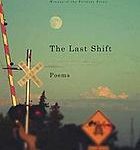 The Last Shift, by Philip Levine (Norton, 2016). In his final volume, Levine leaves us more moving poetry commemorating the dignity of work and honoring the workers on whose backs were built the profits of the auto bosses in the furious economic engine that was Detroit in the 20th century. Although Levine’s workers are often isolated individuals, acted upon, rather than acting through collective action, Levine was almost unique among his contemporaries in admitting into poetry the grit of the industrial working class, at the same time capturing the complexity and beauty of working people’s lives. The accessibility and directness of his poetry offers a music all the more impressive in an era when postmodernism and its esoteric offshoots are major influences in literature today.
The Last Shift, by Philip Levine (Norton, 2016). In his final volume, Levine leaves us more moving poetry commemorating the dignity of work and honoring the workers on whose backs were built the profits of the auto bosses in the furious economic engine that was Detroit in the 20th century. Although Levine’s workers are often isolated individuals, acted upon, rather than acting through collective action, Levine was almost unique among his contemporaries in admitting into poetry the grit of the industrial working class, at the same time capturing the complexity and beauty of working people’s lives. The accessibility and directness of his poetry offers a music all the more impressive in an era when postmodernism and its esoteric offshoots are major influences in literature today.
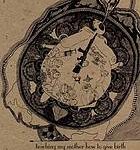 Teaching My Mother How to Give Birth, by Warsan Shire (Flipped Eye, 2011). Shire, a Kenyan-born Somalian refugee, writes of relationships and young womanhood, but also about displacement, immigration, and the traumas of war and political upheaval. Her poem “Home” became an anthem for the immigrant-rights movement worldwide and went viral on social media. Its opening line: “No one leaves home unless home is the mouth of a shark.”
Teaching My Mother How to Give Birth, by Warsan Shire (Flipped Eye, 2011). Shire, a Kenyan-born Somalian refugee, writes of relationships and young womanhood, but also about displacement, immigration, and the traumas of war and political upheaval. Her poem “Home” became an anthem for the immigrant-rights movement worldwide and went viral on social media. Its opening line: “No one leaves home unless home is the mouth of a shark.”
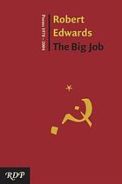 The Big Job, by Robert Edwards (Red Dragonfly, 2016). Part poetry manifesto, part call to action, the “big job” here is to abolish the stranglehold of the rich and powerful and construct a new egalitarian society. If Edwards traces his ancestors back to Thomas McGrath and Meridel Le Sueur, his rich imagery and surprising leaps of language are as accomplished as any writing today. In addition to poems inveighing against the extreme right, Edwards offers powerful poems about American working-class heroes like Pete Seeger and Grandma Millie.
The Big Job, by Robert Edwards (Red Dragonfly, 2016). Part poetry manifesto, part call to action, the “big job” here is to abolish the stranglehold of the rich and powerful and construct a new egalitarian society. If Edwards traces his ancestors back to Thomas McGrath and Meridel Le Sueur, his rich imagery and surprising leaps of language are as accomplished as any writing today. In addition to poems inveighing against the extreme right, Edwards offers powerful poems about American working-class heroes like Pete Seeger and Grandma Millie.
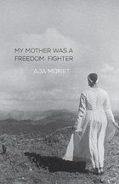 My Mother Was a Freedom Fighter, by Aja Monet (Haymarket, 2017). Echoing literary ancestors like Audre Lorde, Jayne Cortez, and Sonia Sanchez, Monet writes fierce, flowing lines about police violence, displacement, genocide, racism, and sexism. This collection contains quietly powerful meditations on motherhood, sisterhood, spirituality, and solidarity. The poem “My Mother Was a Freedom Fighter” was read by Monet at the Women’s March in Washington, DC, the day after Trump’s inauguration, the largest single day of protest in U.S. history. The poem ends with the rousing line, “My mother was a freedom fighter and she taught me how to fight!”
My Mother Was a Freedom Fighter, by Aja Monet (Haymarket, 2017). Echoing literary ancestors like Audre Lorde, Jayne Cortez, and Sonia Sanchez, Monet writes fierce, flowing lines about police violence, displacement, genocide, racism, and sexism. This collection contains quietly powerful meditations on motherhood, sisterhood, spirituality, and solidarity. The poem “My Mother Was a Freedom Fighter” was read by Monet at the Women’s March in Washington, DC, the day after Trump’s inauguration, the largest single day of protest in U.S. history. The poem ends with the rousing line, “My mother was a freedom fighter and she taught me how to fight!”
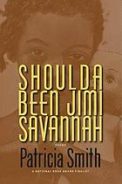 Shoulda Been Jimi Savannah, by Patricia Smith (Coffee House Press, 2012). In her newest collection, Patricia Smith writes about her family’s move from Alabama to Chicago in the 1960s, the difficulties of growing up African American in a white neighborhood, the joy of soul music, and Black pride. Smith is a former poetry slam champion, like Monet. This is gripping and accessible poetry, no less masterful for that in its shifting use of spoken word, free verse, and traditional forms.
Shoulda Been Jimi Savannah, by Patricia Smith (Coffee House Press, 2012). In her newest collection, Patricia Smith writes about her family’s move from Alabama to Chicago in the 1960s, the difficulties of growing up African American in a white neighborhood, the joy of soul music, and Black pride. Smith is a former poetry slam champion, like Monet. This is gripping and accessible poetry, no less masterful for that in its shifting use of spoken word, free verse, and traditional forms.
That is it. Ten poetry books—all of them worth reading, thinking about, and acting upon. Every movement for social change—in fact, every socialist revolution—has had its poetry that illuminates, inspires, and helps unify our struggles. Let us add a few of these poetry books to our library along with the necessary New Jim Crow (Michelle Alexander), This Changes Everything (Naomi Klein), and others as we venture forth into the new decade of terrible danger and great promise.
- Tags:
- Poetry


 Join Now
Join Now